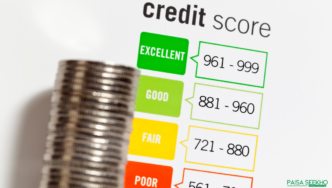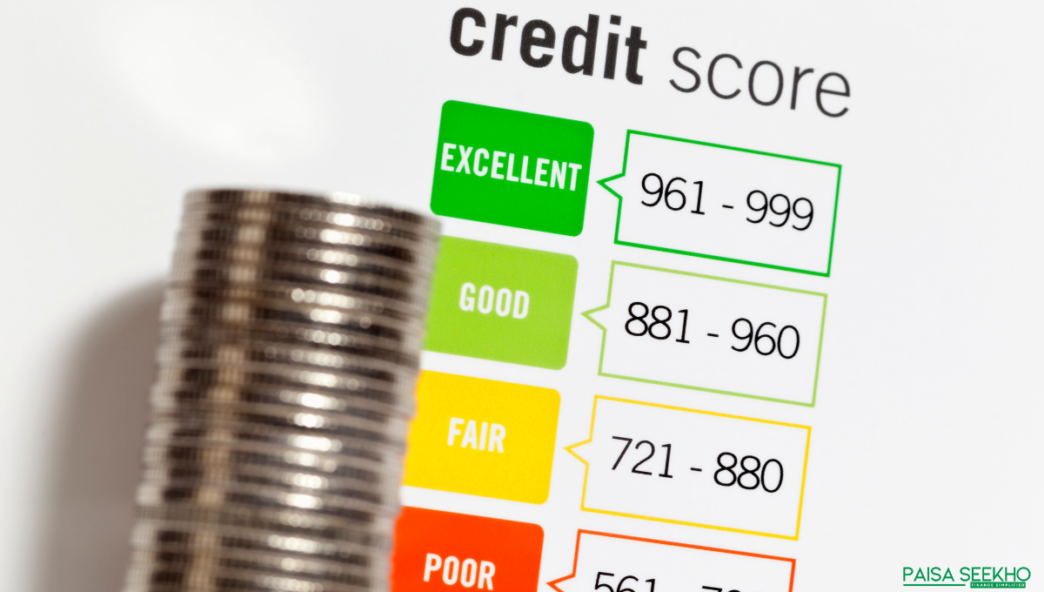Having a good CIBIL score can open numerous doors—whether it’s securing a home loan at a favourable interest rate, qualifying for a higher credit card limit, or simply enjoying peace of mind that your creditworthiness is in top shape. Your CIBIL score reflects your credit behaviour and repayment track record. A higher score signals to lenders that you’re a responsible borrower, while a low one can make it harder and more expensive to access credit.
If you’ve ever wondered why your loan applications got rejected or why you don’t get the best credit card deals, the culprit might be your CIBIL score. Fortunately, improving it isn’t an unreachable task. With systematic planning and consistent effort, you can steadily raise your credit score. This guide breaks down what the CIBIL score is, why it matters, and offers a hands-on roadmap to boost it over time.
Understanding CIBIL and Its Scoring System
What is a CIBIL Score?
In India, CIBIL (Credit Information Bureau (India) Limited) is one of the leading credit bureaus that records your credit history. It compiles data from banks and other financial institutions—covering aspects like your loan repayment history, credit card usage, outstanding balances, and more. The outcome of this compilation is a three-digit score ranging from 300 to 900, summarising your creditworthiness.
- 300-549: Poor
- 550-649: Fair
- 650-749: Good
- 750-900: Excellent
Most banks and non-banking financial companies (NBFCs) tend to be more inclined towards granting loans or credit cards to individuals who fall in the 700+ range, viewing them as lower risk.
Why a High CIBIL Score Matters
- Easier Loan Approvals: A high score increases the likelihood of getting approved for personal loans, home loans, or car loans.
- Favourable Interest Rates: Lenders often reward individuals with strong credit histories by offering lower interest rates.
- Higher Credit Limits: If you already hold a credit card, a strong score can lead to automatic limit increases.
- Faster Approval Process: You won’t have to provide as many additional documents or references if your credit score already shows you’re trustworthy.
- Negotiation Power: A robust score gives you leverage to negotiate better terms—like reduced processing fees or additional perks.
Key Factors That Influence Your CIBIL Score
Although the exact formula used by credit bureaus can be complex, the following aspects heavily influence your score:
- Repayment History (35%)
Late payments or missed EMIs can quickly drag down your score. Timely repayments are crucial. - Credit Utilisation Ratio (30%)
If you frequently max out your credit card or use over 30-40% of your credit limit, lenders may see you as a higher risk. - Credit History Length (15%)
A longstanding credit account with a good track record demonstrates reliability. - Credit Mix (10%)
Managing both secured (home loan, car loan) and unsecured credit (credit cards, personal loans) responsibly can be beneficial. - New Credit Inquiries (10%)
Multiple loan or credit card applications in a short span might appear as a sign of financial distress.
Practical Steps to Improve Your CIBIL Score
1. Check Your Credit Report Regularly
- Obtain a CIBIL Report: You’re entitled to a free credit report once a year from each credit bureau. Going through it helps you spot any incorrect entries or outdated information.
- Dispute Errors: If you find inaccuracies—like loans you never took or closed accounts listed as active—immediately raise a dispute with the bureau. Correcting these mistakes can add valuable points to your score.
2. Pay Bills and EMIs on Time
- Automate Payments: Set up auto-debits or standing instructions so you never miss a due date. One missed EMI or credit card bill can cause a noticeable dent in your score.
- Prioritise High-Interest Debts: If funds are limited, tackle high-interest loans or credit cards first to prevent the snowball effect of mounting interest charges.
3. Maintain a Healthy Credit Utilisation Ratio
- Aim for 30% or Lower: If your credit limit totals INR 1 lakh, try not to spend more than INR 30,000 before clearing the dues. This practice demonstrates responsible usage.
- Multiple Cards: Holding more than one card can help keep utilisation in check, but only if you manage them responsibly. Splitting your expenses across cards might prevent high usage on any single one.
4. Keep Old Accounts Open
- Longer History is Better: Closing an old credit card you’ve managed responsibly might shorten your credit history and reduce your overall limit. This can inadvertently push your utilisation ratio higher if you shift spending to fewer cards.
- Zero Balance: Maintaining a zero balance on old cards but keeping them active can help your credit profile.
5. Avoid Multiple Credit Enquiries in a Short Span
- Space Out Loan Applications: If you apply for multiple loans or credit cards simultaneously, lenders might interpret it as a sign of financial trouble.
- Shop Smartly: If you’re comparing loan rates, do so within a short window. Some credit models treat inquiries within a defined period (e.g., 15 days) as a single inquiry for certain types of loans.
6. Diversify Your Credit Portfolio
- Mix of Secured and Unsecured Loans: Having just credit cards (unsecured) might not be as appealing to lenders as holding a blend of home loans or vehicle loans (secured) plus a credit card or two.
- Don’t Overextend: Only take on new loans if you truly need them. Each new credit line increases your financial obligations.
7. Opt for a Secured Credit Card if Needed
- For Beginners or Those with Low Scores: Secured cards (backed by a fixed deposit) can help build or rebuild credit. Their usage reports to credit bureaus just like regular cards, improving your score over time.
- Low Risk for Lenders: Because they’re secured, approvals are easier and you can carefully improve your track record.
8. Use EMI Options Sparingly
- Too Many EMI Plans: While converting purchases into EMIs might reduce immediate financial burden, it can signal over-reliance on credit.
- Timely Repayment: Always clear your EMIs before the due date. If you consistently juggle multiple EMIs, it could negatively affect your repayment capacity in lenders’ eyes.
Common Mistakes to Avoid
- Overlooking Credit Card Statements
Not reviewing your statements can cause minor errors or fraudulent charges to go unnoticed, ultimately harming your credit profile. - Making Only Minimum Payments
Paying the minimum every month can keep your account “in good standing,” but interest accumulates, and a high balance also drags your score down. - Frequent Balance Transfers
Some individuals move debt from one card to another to exploit promotional rates. While strategic usage can help in some cases, overuse often leads to confusion, missed payments, and multiple inquiries. - Closing Cards with Outstanding Balances
Cancelling a credit card doesn’t eliminate the debt. You must clear the balance, or it remains on your record as owed. - Ignoring Joint Accounts or Co-Signed Loans
If you co-sign or hold a joint account for a loan with someone else, your credit score is also impacted by their repayment behaviour.
Example of How Late Payments Affect Scores
Below is a simplified representation of how a couple of late payments might impact your score:
| Scenario | Number of Late Payments | Approx. Score Impact |
|---|---|---|
| No late payments | 0 | Score remains stable |
| 1-2 late payments in 12 months | 1-2 | Score drop of 50-80 points |
| 3-4 late payments in 12 months | 3-4 | Score drop of 90-130 points |
| More than 4 late payments in a year | >4 | Score drop of 150+ points |
Note: These figures are illustrative. Actual impacts vary based on your existing credit profile.
Monitoring Your Progress
- Regularly Check Your CIBIL Score
- Many financial institutions and credit bureaus allow you to check your credit score online. Make use of these to monitor improvements or detect sudden drops.
- A stable or gradually increasing score indicates your strategies are working.
- Set Financial Goals
- Aim to clear smaller debts within a certain timeframe.
- Plan to reduce your credit utilisation to under 30% within a few months.
- Celebrate Milestones
- Each time you see a notable jump in your CIBIL score, acknowledge it. Positive reinforcement helps maintain good credit habits.
Conclusion
Building and maintaining a good CIBIL score is an ongoing process that requires discipline, knowledge, and consistent effort. From paying bills on time to keeping your credit utilisation low, each strategy you adopt contributes to an overall healthier credit profile. Even if you’re starting with a modest score, you can steadily elevate it by following the steps outlined above.
Above all, remember that improving your credit score isn’t just about numbers—it’s about fostering a strong financial foundation. A solid score not only saves you money (through lower interest rates) but also offers a sense of security and flexibility in times of need. Platforms like PaisaSeekho can help you understand these concepts further, offering tools, expert opinions, and resources to guide you through your credit-building journey.
So, whether you aspire to buy a new house, secure a business loan, or simply enjoy the confidence that comes with solid finances, focusing on your CIBIL score is an excellent starting point. Through careful planning and a mindful approach to borrowing, you’ll soon find your credit trajectory taking a positive turn—bringing your dreams within easier reach.
FAQs
How often should I check my CIBIL score?
You can check it once every couple of months or at least quarterly. Frequent checks help you stay alert for errors or identify a downward trend early. Remember, checking your own score through “soft inquiries” does not lower it.
Does having multiple credit cards always lower my score?
Not necessarily. Holding multiple cards can be beneficial if you manage them responsibly, keep utilisation low, and never miss payments. Problems arise when you rack up high balances or fail to pay bills on time.
Will closing a credit card improve my score?
Not automatically. Closing a long-standing card might reduce your available credit limit and shorten your overall credit history, which can hurt your score. Make decisions based on credit utilisation and account history length.
Can a new loan help increase my score?
Potentially, if you repay on time and maintain a healthy credit mix. However, repeatedly applying for loans just to “diversify” could appear risky to lenders.
How long does it take to rebuild a poor CIBIL score?
There’s no universal timeframe. Minor improvements can appear within a few months, especially if you fix errors or clear overdue bills. However, going from a poor rating (below 600) to an excellent one (750+) can take a year or more of diligent repayment and responsible usage.
Is it safe to share my PAN and other details online to check my score?
Only share personal details on legitimate, reputable websites—preferably the official CIBIL site or well-known banking portals. Exercise caution if any platform requests unusual information or seems unverified.













